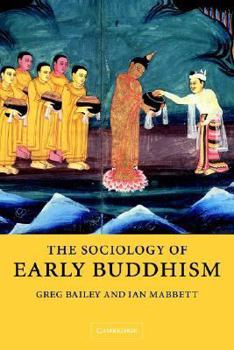The Sociology of Early Buddhism
Select Format
Select Condition 
Book Overview
Early Buddhism flourished because it was able to take up the challenge represented by buoyant economic conditions and the need for cultural uniformity in the newly emergent states in north-eastern India from the fifth century BCE onwards. This book begins with the apparent inconsistency of Buddhism, a renunciant movement, surviving within a strong urban environment, and draws out the implications of this. In spite of the Buddhist ascetic imperative, the Buddha and other celebrated monks moved easily through various levels of society and fitted into the urban landscape they inhabited. The Sociology of Early Buddhism tells how and why the early monks were able to exploit the social and political conditions of mid-first millennium north-eastern India in such a way as to ensure the growth of Buddhism into a major world religion. Its readership lies both within Buddhist studies and more widely among historians, sociologists and anthropologists of religion.
Format:Paperback
Language:English
ISBN:0521025214
ISBN13:9780521025218
Release Date:March 2006
Publisher:Cambridge University Press
Length:296 Pages
Weight:1.00 lbs.
Dimensions:0.7" x 6.0" x 9.0"
Customer Reviews
0 rating





